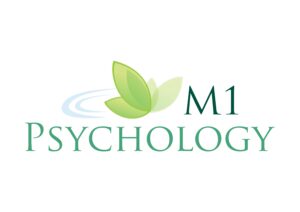At M1 Psychology, we understand that seeking therapy can be a significant step towards improving your mental health and well-being. We also recognize that attending in-person appointments in the clinic may not always be feasible for everyone due to various reasons such as mobility issues and … More... about Home Visits
Main Content
Click on the tab on the right for information on who is the best match for your needs. We have 30+ clinical staff across 2 locations: Wishart and Loganholme.
Or you can book online 24/7 and you’ll be able to find the next available appointment at our clinics.
Book an Appointment
Open 6 days a week 8am-8pm!
We have face-to-face, online and telephone consults available. Psychologists, Accredited MH Social Workers and Counsellors.
We have mental health experts covering all ages, couples counselling, family counselling, assessments and treatment report needs. Book Now!
Call (07) 3067 9129 Fax (07) 3801 2608
Email reception@m1psychology.com

Dr Yu Takizawa
PhD (Psych) M App Psych (Counselling), B Sc (Hons), M Couns, MAPS Dr Takizawa has recently completed his PhD in psychology. Dr Takizawa is an Australian-trained counselling psychologist with a … More... about Dr Yu Takizawa

Pragnya Indugula
BSc in Psych, MSc in Child and Family Psych, PGDip in Health Sc (Couns), PGDip In Psych Prac Book Now Pragnya is a passionate Psychologist with a strong focus on empowerment, she works with … More... about Pragnya Indugula

Linh Nguyen
Book Now B Psych (Hons), MClinPsych I am Phuong Linh, a psychologist at Vision and M1 Psychology. My educational background includes a Bachelor of Psychological Science (Hons), and a Master of … More... about Linh Nguyen

Dr David Ward
PhD (SW), MPhil, M.Couns, B. SocWk, BA, Grad Dip (Couple Therapy) I’ve been a therapist for over 25 years now and am an Accredited Mental Health Social Worker, having worked in government and … More... about Dr David Ward

Ashley Glennie
Book Now Ashley Glennie is a Generally Registered Psychologist originally from Canada. Ashley completed her Bachelor of Psychology (Honours) in Australia and is passionate about working with … More..... about Ashley Glennie

Tyler Kwon
Book Now M SocWk, B Sc Psych Tyler is an Australian-trained accredited mental health social worker (AMHSW) with passion and experience in supporting adults and young people struggling with a … More... about Tyler Kwon

Alister Ballschmieter
Book Now B Psych (Hons) My name is Alister, I am a registered psychologist and Board-Approved Supervisor with experience working with clients across the lifespan. I bring positive regard and … More... about Alister Ballschmieter

Katalin Mezei
B Psych & Crim (Hons), G. Dip Psych, MSc Health Psych. I am a Provisional Psychologist now based in Brisbane, having completed my undergraduate and Master’s training in the United Kingdom. While … More... about Katalin Mezei
Doctor & Hospital Referrals
Fax Referrals and Mental Health Care Plans to (07) 3801 2608. Vision and M1 Psychology provides a diverse range of Psychological and Counselling Services for doctors and specialists that would like … Read more about Doctor & Hospital Referrals

Dr Pauline Baleta
Book Now MA Psych (UJ) Cum Laude, PhD Psych (UP), MAPS Clinical Psychologist Dr Pauline Baleta is from South Africa where she was a fully registered senior clinical psychologist for the past 15 … More... about Dr Pauline Baleta

Dr Jan Philamon
PhD, B Psych (Hons), D Teaching, JP (Qual), Qld, MAPS, MAAPi. Dr Jan is a registered Psychologist and member of the Australian Psychological Society (MAPS). She has a wealth of experience in supporting people of all ages, in a variety of spheres, … More... about Dr Jan Philamon

Willem van den Berg
B SocSci (Psych & Criminology), B.SocSci (Hons) (Psy)M.Sc Clin Psych. Willem van den Berg is a Psychologist from South Africa, with almost 20 years of experience in providing psychotherapy to a … More... about Willem van den Berg

Christopher Lee
B Psych Science (Hons); Masters of Psych (Clinical); MAPS I am a clinical psychologist who specialises in trauma and with a keen interest in a wide range of psychological problems, as well as … More... about Christopher Lee

Lauren Otto
MA Clinical Psych. Lauren Otto is a Psychologist from South Africa, who completed her Master’s training in Australia. She enjoys working with a diverse group of clients with a wide range of life … More... about Lauren Otto

Corey Human
B Th (Hons), M Counselling,Dip Youth Work, Dip Youth Justice,Dip Couns, Dip PentTheo, Dip Ministry.Member of PACFA and CCAA. To make an appointment with Corey Human please choose Online Booking or … More... about Corey Human

Sharyn Jones
B Psych (Hons), MTeach (Pri) Sharyn is a registered psychologist who has spent a significant amount of time working in a variety of settings including schools, crisis helplines, employment services … More... about Sharyn Jones

Abbey Sawyer
MScMed (SRH), PostGradDipPsych, BPsychSci, BCrim, MAAPi. Abbey is a Registered Psychologist and Sexologist who does online/phone consultations only. She holds a Master of Science in Medicine … More... about Abbey Sawyer
Invest in Yourself Today and Pay Fortnightly to Suit your Budget!

Flexible Payment Plans
Our team can assist you with flexible payment plans that are interest free. This exciting new option is now available to our clients. Speak with our admin staff at the clinic or over the phone. We cover psychology, counselling, psychiatry and assessments/reports. Key features include: Eligible clients can expect to have treatment paid immediately once the application has been … More... about Flexible Payment Plans
Cindy Porter
B Psych (Hons), Master of Clin Psych. Psychologist, Cindy Porter, has a passion to support people to reconnect with themselves and others, and find peace and freedom within their lives from an … More... about Cindy Porter
Jim Adsett
B Psych (Hons). Jim is a highly experienced psychologist, skilled at providing counselling and treatment for a range of issues. He brings a compassionate and practical attitude to therapy and has … More... about Jim Adsett
Jessica Allam
BSocial Work, COSP Facilitator, AASW. Hi, my name is Jessica and I am an Accredited Mental Health Social Worker. I have had extensive experience working in a Non-Government Organisation, the … More... about Jessica Allam
Ilana Gorovoy
B.Arts (Psych), B. Arts (Hons.)(Psychology), MPsych (Couns.) Hi, I’m Ilana. I am a registered psychologist, and have worked in the healthcare field both in Australia and overseas, in military, … More... about Ilana Gorovoy
Nenad Bakaj
MHumServ (RehabCouns), BSocWk,DipAppSci (Comm&HumServ). Nenad is a Brisbane-based clinical counsellor and accredited mental health social worker, with specialist training … More... about Nenad Bakaj
Daniel Istanboulli
M SocWk, B Couns, Dip Couns, Cert IV Telephone Couns Book Now I am a qualified Counsellor and an Accredited Mental Health Social Worker. I utilise both professions to provide an effective … More... about Daniel Istanboulli
Manouche Lang
B ScMed Engineering, AD. Clin Hypnotherapy, Psychotherapy & Couns Manouche Lang, an accomplished Advanced Diploma Hypnotherapist, Psychotherapist, and Counsellor associated with GoAH and ASCH, … More... about Manouche Lang

